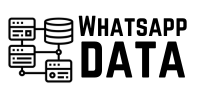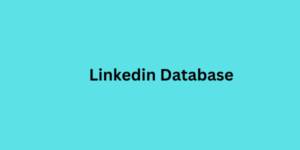Effective marketing communication. Marketing communications is the process of planning, designing, implementing and evaluating marketing activities that aim to promote products or services, as well as build the company’s image among potential customers.
These activities are coordinated to create a coherent marketing strategy that will help achieve business goals, such as increasing sales, acquiring new customers, or building loyalty among existing customers.
Nowadays, marketing communications often use modern technologies
Such as the Internet and social media, to reach more potential customers. Many companies also use personalization, or adapting the message to the specific linkedIn database needs and interests of customers.
Effective marketing communication. One of the important aspects of marketing communications is measuring its effectiveness and adjusting strategies based on the results. This allows companies to better understand their customers and adapt their activities to their needs and preferences, which translates into increased effectiveness of marketing campaigns and achievement of business goals.
Plannings is essential to creating an effective marketing strategy. Here are some tips to help you achieve positive results in your marketing communications.
- Define your target group – first, define who you are directing your marketing activities to. This will make it easier for you to tailor your message to the needs and expectations of a specific group of recipients.
- Tailor your message to the communication channel – select appropriate communication channels, e.g. social media, email marketing, online advertising, TV advertising, etc. and tailor your message to the specifics of a given channel.
-
Build a consistent brand image
- all marketing activities should be consistent with the brand’s visual identification. This will ensure that your company is associated with specific values and stands out on the market.
- Create a valuable and engaging message – create content that will be interesting for your target group, responding to their needs and problems. This way you build a positive brand image and gain customer loyalty.
- Monitor Results – Regularly monitor the results of your marketing activities and adjust your strategy based on the results obtained. This will help you avoid wasting time and resources on activities that do not bring results.
Remember that effective marketing communication is a continuous process and requires constant refinement and improvement. Below are examples of activities that will help you plan and create.
Bulk SMS sending
Bulk SMS is the process of sending a large number of text messages to recipients using special software or an Internet service. Such a process can be used to what are communication skills communication skills conduct marketing campaigns, inform customers about new products or services, remind them about payment deadlines, or inform them about important events.
Bulk SMS can be done by a variety of organizations, including telecommunications companies, SMS software providers, or Internet services. Sending such a message can be cost-effective because it allows you to reach a large number of recipients in a short time and with a minimum of effort.
However, sending bulk SMS messages may have certain limitations, such as the need to obtain the recipients’ consent to receive messages, the risk of messages being rejected by mobile operators or spam filters, and the risk of loss of reputation in the eyes of recipients who may perceive the messages as unwanted or intrusive.
We wrote more about the effects obtained from SMS sending in a separate article:
Mass MMS sending
Mass MMS is the process of sending a large number of multimedia messages to recipients using special software or an Internet service. MMS is a more advanced form of text messaging. That allows you to send not only text, but also images, sounds, videos, and other multimedia files.
Similar to bulk SMS, bulk MMS can be used for marketing, informational or communication purposes. Such campaigns may include sending advertisements, notifications of new products, information about promotions or reminders of important events.
However, sending MMS requires more advanced software and infrastructure than sending SMS. Moreover, due to the larger size of multimedia files, the costs of such a service may be higher. Additionally, some phones do not support MMS, which may be a limitation for marketing campaigns.
Similarly to the case of mass SMS sending, mass MMS sending requires compliance with the rules related. The processing of personal data and requires the consent of the recipients to receive the messages.
Mailing
Mailing is a form of marketing communication that involves sending letters or emails to potential or existing customers. Thi is often used for australia data advertising and promotional purposes, but it can also be used to inform customers about new products or services. Remind them of payment deadlines, provide important information, and other business purposes.
Mailing can be done in different ways. Letters can be sent by post or electronically, and e-mails can be sent using special software or Internet services. Sending mailings can be cost-effective because it allows you to reach a large number of recipients in a short time and with a minimum of work.
However, as with other forms of marketing
Effective marketing communication. Sending mailings requires compliance with personal data protection regulations and data processing rules. Failure to comply with these rules may result in a breach of customer. Privacy and may also lead to a loss of the company’s reputation. In addition, sending too many emails or to the wrong recipients may discourage them from using the company’s services.

